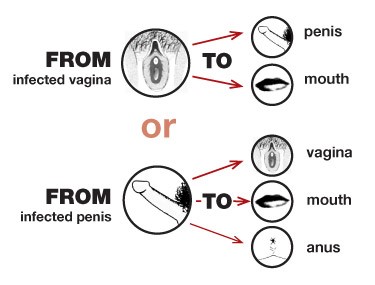Pelvic inflammatory disease (PID) basically refers to infection of the fallopian tubes, uterus, and other reproductive organs. You usually develop it because of some sexually transmitted diseases, such as Chlamydia or gonorrhea. The infection causes severe lower abdominal pain, which may become severe when it damages the fallopian tubes and tissues near the uterus and ovaries. PID may also lead to some serious complications causing ectopic pregnancy, infertility, chronic pelvic pain, and abscess formation.
Is It Possible to Develop Pelvic Inflammatory Disease in Men?
No, it is not possible to develop PID in men because it is an infection of the uterus and fallopian tubes. It affects only women and develops when bacteria from the vagina move up into the upper reproductive organs during sexual contact. It is worth mentioning that while men cannot have PID, they can still contract sexually transmitted infections, including urethritis, orchitis, or prostatitis.
Neisseria gonorrhoeae and Chlamydia trachomatis are two bacteria involved in sexually transmitted diseases such as gonorrhea and chlamydia. Men can have these infections and transmit them to a woman while having unprotected sex.
What to Do If Your Sex Partner Has PID?
It is not possible to develop pelvic inflammatory disease in men, but your female partner can develop it. If your sex partner has PID, you should wait for at least a couple of weeks after treatment before engaging in any sexual activity, including anal, oral, and vaginal sex.
A woman who has PID and engages in a sexual act with a man should inform him about her condition. It is possible for that man to have sex with another woman and infect her. Both partners should be tested for infections and treated accordingly. It is best to avoid having sex with anyone who has not had any tests related to STIs because it is possible to have chlamydia and do not know it.
Check out the following video to understand the basics of PID:
Chlamydia and Gonorrhea in Men
Both gonorrhea and chlamydia are sexually transmitted bacterial infections that can affect both men and women. Different types of bacteria are involved in these infections, but they produce rather similar symptoms, which can be treated with antibiotics.
Keep in mind that it is possible to have these infections and experience no symptoms at all. When left untreated, these infections can cause serious complications and even lead to infertility in men and women. If you have one of these infections, you are at a greater risk of becoming infected with HIV.
Though many people infected with gonorrhea or chlamydia may or may not have any symptoms. Those who experience some symptoms usually have a burning pain when urinating and pain in the pelvic area. Green, yellow, or white discharge from penis, vagina, or anus is another sign of infection. There may also be vaginal, penile, or anal itching with swelling or pain in the scrotum. Painful sexual intercourse is yet another symptom of sexually transmitted infection.
It is possible to contract gonorrhea and chlamydia through anal, oral, or vaginal sex. The infection spreads when bacteria from an infected person are exposed to the thin, moist lining inside the vagina, mouth, or rectum.

The bacterium that causes chlamydia is also responsible for causing an infection called lymphogranuloma venereum or LGV, which causes a painless lump or sore to appear in the penis, vagina, cervix, rectum, or mouth. It also leads to the swelling of the lymph nodes close to the infection site.
You usually need to take antibiotics to treat these infections. It is also important to avoid unprotected sexual activities to ensure you do not infect your partner or become infected again. Be sure to complete your course of antibiotics even when you start to feel better after a few days.
How to Reduce Your Risk for STIs
Although there is no risk of pelvic inflammatory disease in men, there are many other types of sexually transmitted infections that both men and women can get. Here is a bit about how to reduce your risk for these infections:
- Educate yourself about STIs: You need to learn more about sexually transmitted diseases and infections and know how they spread. You can also learn how you can protect yourself and what treatment options are available.
- Abstinence: The only surefire way of protecting yourself from getting infected is to avoid having sex at all. You should refrain from vagina, anal, or oral sex to stay protected.
- Vaccinations: You can find vaccines of so many common infections including HPV, hepatitis B, and more. Getting vaccinated will help lower your risk of getting those infections. You should get these vaccinations before becoming sexually active. HPV vaccines are recommended for teen boys through age 21 and all teen girls through age 26.
- Limit the number of your sex partners: Limiting yourself to your partner who you know has no infections is yet another way of lowering your risk of getting infected.
- Use condoms: Wearing condoms is yet another effective way of protecting yourself from sexually transmitted diseases and infections. You should use a condom every time you have vaginal, anal, or oral sex. Latex condoms are more popular, but you can find synthetic non-latex condoms as well that you can use if you are allergic to latex. Do not opt for natural membrane condoms because they do not offer complete protection from STDs.
Above all, you need to have clear information about your STD status. If you are infected, seek the treatment. If your partner is infected, do not engage in sexual activities until he/she has recovered fully.
